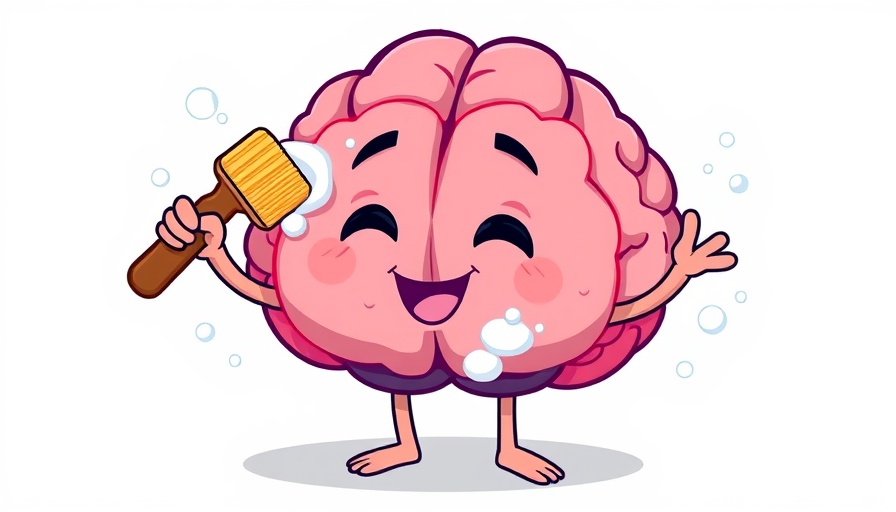
Understanding the Glymphatic System: Our Brain’s Waste Removal Crew
The brain, an intricate organ responsible for our thoughts, memories, and emotions, has its own unique waste disposal system known as the glymphatic system. This system works much like the lymphatic system found in the rest of our body, but with one crucial difference: it is most active while we sleep. Detailed studies have shown that, during sleep, cerebrospinal fluid circulates more effectively, clearing out waste products like amyloid beta protein, a compound associated with Alzheimer's disease. Disrupted sleep, therefore, could diminish this cleaning process, heightening risks for neurodegenerative diseases.
Sleep’s Role in Reducing Dementia Risk
Research increasingly highlights the correlation between sleep patterns and the risk of developing dementia. During sleep, the glymphatic system operates more efficiently, facilitating the clearance of potential toxins from our brains. Insufficient sleep could prevent this necessary detox, leading to a buildup of harmful substances. Recent evidence indicates that improving sleep hygiene could be a preventative measure against diseases such as Alzheimer's, which remains a major concern for aging populations.
The Debate: Day vs. Night Glymphatic Activity
There remains some debate among scientists regarding glymphatic activity timing. While traditional beliefs suggested that this system is predominantly active during sleep, some recent studies propose that it might operate optimally during the daytime in certain contexts. This conflicting information signals that ongoing research is essential for a complete understanding of how our brains detoxify themselves, emphasizing our current limited knowledge of the human brain's functional processes as opposed to those of other species, like mice.
Why Prioritizing Sleep is Essential for Brain Health
Prioritizing sleep is not just about feeling rested; it’s a crucial component of optimal health and wellness. As our understanding of the glymphatic system evolves, so too does the emphasis on maintaining good sleep habits. To promote better sleep, individuals can implement various strategies such as adhering to a consistent sleep schedule, creating a calming bedtime routine, and minimizing blue light exposure before sleep. The benefits extend beyond reducing dementia risk, helping improve overall memory and cognitive function.
Actionable Insights for Sleep and Health
Everyone can take steps to improve their sleep habits and, by extension, their brain health. Simple lifestyle changes can include creating a sleep-friendly environment, avoiding stimulants in the evening, and practicing relaxation techniques such as yoga or meditation. It’s also beneficial to explore holistic approaches, such as consulting with a naturopathic doctor, to discover personalized methods for improving health and wellness.
Conclusion: The Intersection of Sleep and Health Innovations
As more studies unveil the astonishing relationship between sleep and brain health, there is a clear directive: prioritize sleep for a healthier future. Understanding the glymphatic system and its crucial role in toxin clearance positions sleep as an essential ally in our fight against dementia. Our ongoing pursuit of good sleep hygiene serves not just our cognitive needs but enhances our overall well-being. Therefore, we must explore and utilize resources and practices that promote both sleep and comprehensive health, for a balanced and fulfilling life.
In a world increasingly focused on health and wellness, consider the steps you can take to ensure you are doing what you can for your mind and body. Attend community health and wellness events, delve into health and wellness books, or seek out local naturopathic medicine practitioners for guidance tailored to your specific needs. Embrace this knowledge, and take your health into your own hands!
 Add Element
Add Element  Add Row
Add Row 



Write A Comment